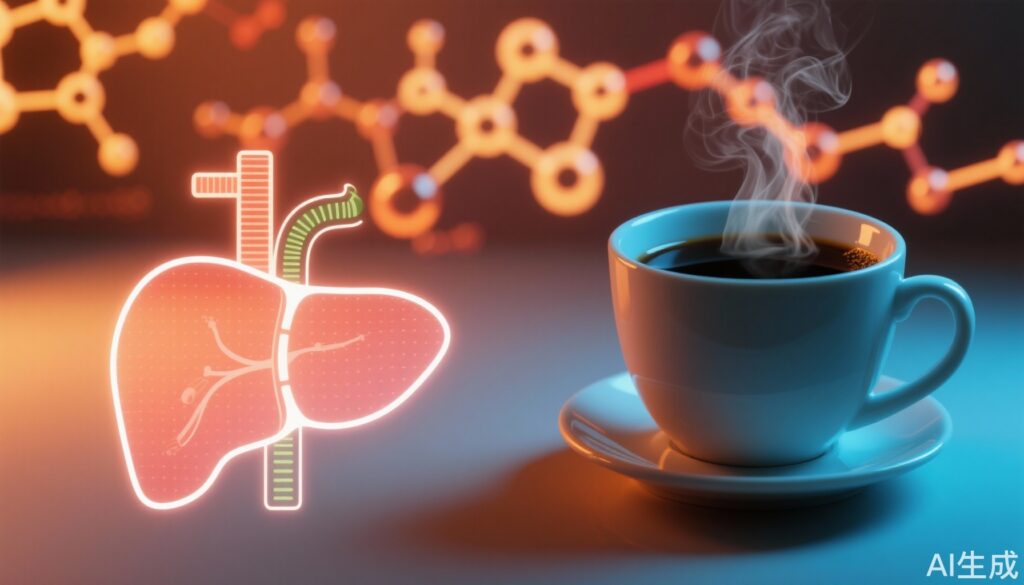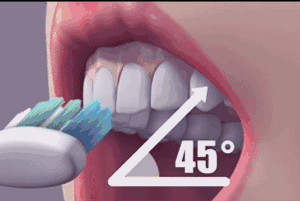Introduction
“Morning coffee, here I come!” has become a popular phrase among youth, capturing the cultural and social trend that coffee embodies today. Beyond its stimulating effect and taste, coffee is gaining attention for a remarkable health benefit — its potential to protect the liver and reduce the risk of liver damage. This article delves into the latest scientific findings that support the role of coffee, particularly caffeine, in liver health and explores emerging strategies that leverage these insights for broader health benefits.
The Growing Liver Disease Burden
Liver diseases, including non-alcoholic fatty liver disease (NAFLD), steatohepatitis, and fibrosis, affect millions worldwide and pose significant public health challenges. NAFLD is a rapidly growing concern, linked with obesity, diabetes, and metabolic syndrome. Despite increasing prevalence, effective interventions to prevent progression to severe liver damage remain limited. Thus, identifying accessible lifestyle factors, such as coffee consumption, to mitigate liver disease risk has garnered considerable interest.
Scientific Evidence: Coffee as a Liver Protector
Recent peer-reviewed research is unveiling the biological pathways through which coffee supports liver health. A notable study published in the journal Redox Biology by a team from Shanghai University of Traditional Chinese Medicine is pioneering this understanding. Their research highlights caffeine’s interaction with a liver-specific protein, Dusp9, crucial in regulating inflammation and fibrosis in fatty liver disease.
Caffeine and Dusp9: A Molecular Dialogue
The Shanghai team discovered that caffeine precisely “docks” with Dusp9, restoring its proper function, which is compromised in fatty liver disease. This interaction brings several benefits:
– Enhances the liver’s ability to metabolize sugars and fats, reducing excessive fat accumulation.
– Suppresses harmful inflammatory responses that can damage liver tissue.
– Decreases the development of fibrotic scar tissue, preserving liver elasticity and function.
This multifaceted protective mechanism provides a compelling scientific explanation for the hepatoprotective effects attributed to coffee.
Corroboration from Clinical Data
Supporting these molecular insights, epidemiological studies provide real-world validation. Research from the affiliated Zhongda Hospital of Southeast University published in the Journal of Advanced Research found that individuals consuming at least 78 mg of caffeine daily—roughly equivalent to one cup of American-style coffee—experienced a 29.3% reduction in the risk of liver fibrosis, irrespective of their blood glucose status.
Addressing Popular Misconceptions and Limitations
Despite these promising findings, it’s important to acknowledge that coffee is not a panacea for liver disease. The current evidence mainly comes from observational studies; causal relationships require confirmation through randomized controlled trials.
Moreover, individual differences in caffeine metabolism critically influence coffee’s effects. Clinical studies estimate that 30%-50% of the Chinese population are “slow metabolizers” of caffeine. For them, coffee consumption may provoke adverse effects such as palpitations, insomnia, gastric discomfort, and even blood pressure fluctuations, which challenge habitual intake.
Thus, recommending daily coffee intake universally is neither practical nor safe for everyone.
Innovative Domestic Technologies and Future Directions
Recognizing these challenges has galvanized researchers and industry to innovate tailored liver protection strategies. Harnessing “domestic black technologies,” scientists are developing compound formulations with safer and more universally applicable ingredients that replicate or enhance coffee’s beneficial mechanisms.
Such innovations aim to democratize liver health benefits beyond coffee drinkers, especially for populations with slow caffeine metabolism or intolerance.
Science-Driven Health Management and Accessibility
The scientific progress around coffee and liver health underscores a broader vision: leveraging natural and everyday dietary factors, empowered by technology, to create sustainable, accessible health management solutions.
As one lead researcher emphasized, “Our goal is not for everyone to drink large amounts of coffee but to understand the protective mechanisms and translate these insights into stable, effective interventions usable by all.”
This approach promises to move public health from anecdotal habits toward evidence-based precision wellness.
Expert Insights
Dr. Ming Zhao, hepatologist at Shanghai Medical Center, notes, “These findings remind us that simple lifestyle modifications, such as moderate coffee consumption, can contribute meaningfully to liver health. However, personalized guidance is essential to balance benefits and risks.”
Patient Scenario: John’s Liver Health Journey
John, a 52-year-old American with a sedentary lifestyle and early NAFLD diagnosis, wondered if his morning coffee habit could be more than a simple ritual. After learning about the liver benefits of caffeine, John discussed with his clinician the potential advantages and risks.
Together, they devised a tailored plan that included one cup of coffee in the morning, monitoring for any intolerance symptoms. John also embraced dietary changes and increased physical activity.
Over a 12-month follow-up, his liver enzymes improved, and liver ultrasound showed reduced fat deposits, underscoring the potential of integrating coffee consumption into holistic liver care.
Conclusion
Compelling evidence links regular moderate coffee intake to reduced liver damage risk, potentially lowering fibrosis incidence by about 30%. The interaction of caffeine with liver proteins such as Dusp9 offers a scientifically grounded explanation.
However, due to interindividual variability in caffeine metabolism and the observational nature of current studies, coffee should be viewed as a supportive lifestyle component rather than a primary treatment.
Future research and innovation are focused on developing safer, more adaptable interventions that capture coffee’s liver-protective benefits without coffee’s potential side effects. This paradigm promises to enhance liver disease prevention and health equity worldwide.
References
1. Xia, Y., et al. (2023). Caffeine interacts with Dusp9 to mitigate non-alcoholic steatohepatitis via regulation of MAPK signaling. Redox Biology, 56, 102427. doi:10.1016/j.redox.2023.102427
2. Li, H., et al. (2022). Association of caffeine intake with liver fibrosis in a Chinese cohort. Journal of Advanced Research, 36, 297-304. doi:10.1016/j.jare.2021.08.014
3. Nehlig, A. (2018). Interindividual differences in caffeine metabolism and sensitivity. Pharmacological Reviews, 70(2), 384-411. doi:10.1124/pr.117.014407
4. European Association for the Study of the Liver (EASL). (2016). EASL Clinical Practice Guidelines on Non-invasive Tests for Evaluation of Liver Disease Severity and Prognosis. Journal of Hepatology, 63(1), 237-264. doi:10.1016/j.jhep.2015.05.001


